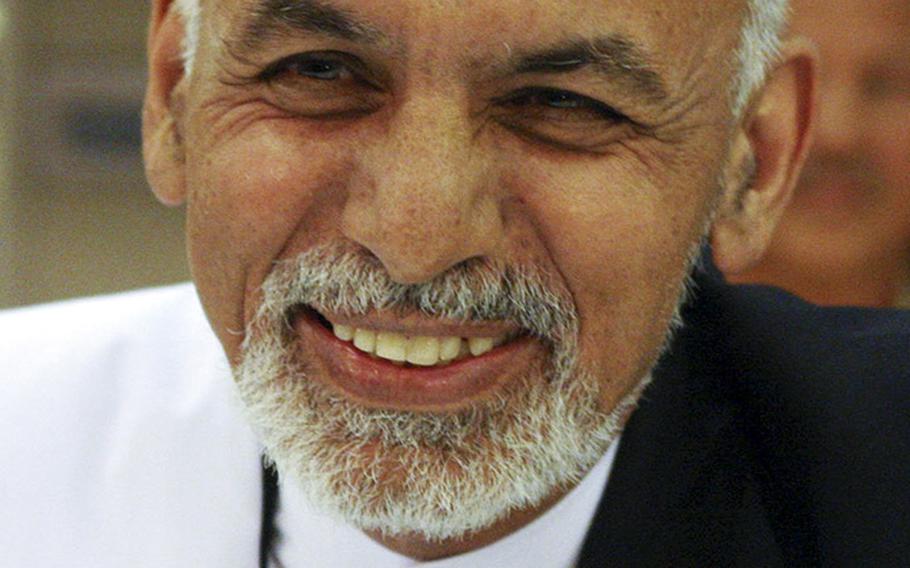
Ashraf Ghani (MCT)
KABUL, Afghanistan — Ashraf Ghani will be inaugurated next week as president of Afghanistan, but it remains uncertain how soon he might sign a long-awaited security agreement that will set the terms for U.S. forces to remain in the country into next year.
The inauguration is set for next Monday, officials said, capping a lengthy and fraught election process in which Ghani and his rival in the June runoff election, Abdullah Abdullah, accused each other of fraud.
Ghani pledged on Monday to work for the “prosperity, development and peace of the country.”
“We are tired of bloodshed,” he told several hundred supporters, members of parliament and dignitaries in a speech carried on national television.
The protracted election process, which included a U.N.-sponsored audit of the 8 million ballots cast, worried U.S. and NATO officials, who have been counting on the new president to sign a Bilateral Security Agreement that will allow U.S. and international forces to stay after the combat mission ends in December.
Current President Hamid Karzai has refused to sign the agreement, leaving that to his successor.
Both Ghani and Abdullah have said in the past that they would sign the agreement, which would allow nearly 10,000 U.S. and 2,000-3,000 troops from other countries to remain, primarily as advisers and instructors. NATO has a similar agreement with Afghanistan awaiting signature.
A U.S. diplomat, speaking on condition of anonymity because of the sensitivity of the matter, said Ghani had confirmed his intent to sign the Bilateral Security Agreement promptly after inauguration. “The signing of the BSA remains a top U.S. and Afghan priority,” the official said.
Ghani’s election was announced just hours after he and Abdullah concluded a far-reaching agreement on a national unity government.
It envisions a new post of cabinet chief executive and sweeping constitutional reforms. Abdullah or one of his nominees is expected to fill the powerful new position, which both candidates had agreed to in principle after meetings last month with Secretary of State John Kerry.
“Abdullah and his team will remain with us,” Ghani said in his speech. “They will be close colleagues with us in the government.”
Haleem Fidayee, a senior member of Ghani’s election team, said the inauguration ceremony would be held next Monday. That was confirmed by international officials in Kabul.
Fidayee said it was unclear when the election commission would release the final vote tally.
He also said the two candidates and their aides had been “totally consumed” in recent weeks by negotiations on the power-sharing deal and had not had time to consider when the Bilateral Security Agreement with the U.S. would be concluded.
The NATO-led international coalition, which numbered about 150,000 three years ago, still has 41,000 in Afghanistan — two-thirds of them Americans. Afghanistan’s security forces number about 350,000 members.
This year has been the bloodiest on record for the Afghan army and police, now fully responsible for the country’s security, as the Taliban have taken advantage of the long electoral impasse to launch a series of attacks across the nation.
The Taliban immediately rejected the new administration, calling it “a product of the sham election ... organized by the foreigners.”
“It is not acceptable to Afghans by any means,” a statement by the group said. “Jihad will continue in order to save Afghanistan from foreign occupation and pave the way for a real Islamic state.”
Zubair Babakarkhail contributed to this report.